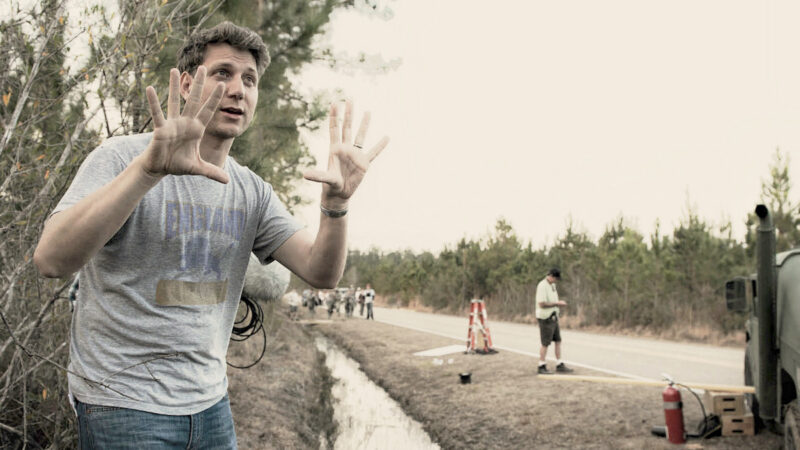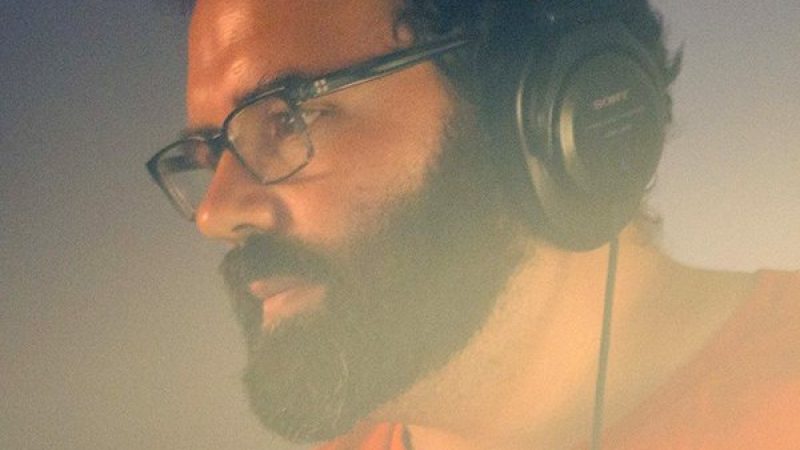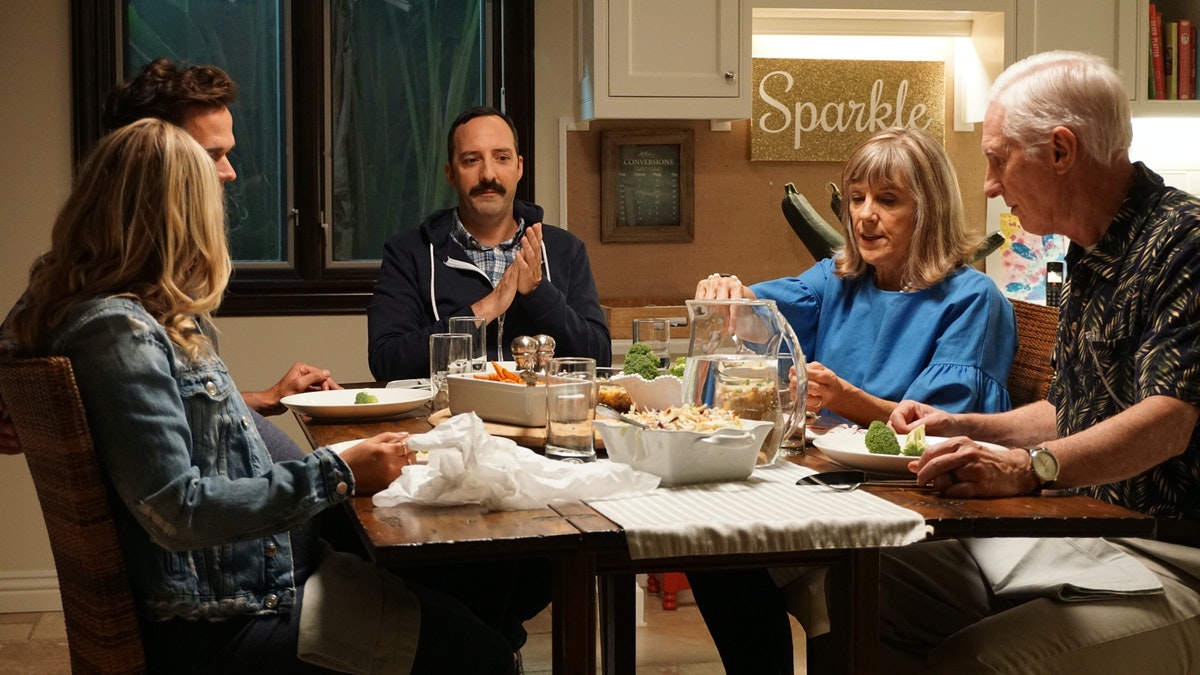
Writer and Director Scott Abramovitch who wrote and directed Eat Wheaties expressed the amazing collaboration he had with Canadian composer Kevin Krouglow. He said, “Our collaboration from brainstorming to crafting the sound and executing the smallest notes that would make a huge impact was truly rewarding. Mostly, beyond being an incredibly talented musician Kevin is a special young man”.
As an emerging composer, we hope that Kevin’s work on Eat Wheaties! will open many opportunities for Kevin to score many more films, so we received Kevin with open arms to discuss the details of his efforts on Eat Wheaties! We hope Kevin’s work will excite you all.
indieactivity: Hello. It’s great to meet you. Can you briefly talk about yourself and a recent project?
Kevin Krouglow (KK): Thanks so much for having me on Indie Activity! My name is Kevin Krouglow, and I’m a Film and TV composer based out of Toronto, Canada. I’ve worked on numerous TV shows including the Disney Channel’s “Backstage” and Family Channel’s “The Next Step” as well as feature films such as “Trench 11” starring Rossif Sutherland and “Full Out” starring Ana Golja. Most recently, I had the pleasure of working with writer/director/producer Scott Abramovitch on the score for his film “Eat Wheaties!”, a heartfelt comedy starring Tony Hale, and co-starring Paul Walter Hauser and a slew of other talented household names. It just came out in theatres and on-demand on April 30th – I’m really excited about it!
Kevin Krouglow Composed the score for Ear Wheaties (2021), starring Elisha Cuthbert, Sarah Chalke, and Tony Hale.
The story follows the well-meaning but socially awkward Sid Straw (played by Tony Hale), and how his life unravels as he tries to prove he was friends with a celebrity (Elizabeth Banks) in college. It’s based on the Michael Kun book “The Locklear Letters”, but has been updated to reflect the current social media era. At the end of the day, it’s really a story about Sid learning how to be happy with himself for who he is without needing the external validation of others.
Before we get into your work on “Eat Wheaties!”, tell us a bit more about your backstory. Did you always know you wanted to be a composer? How did you get started and what led you to where you are today?
Kevin Krouglow (KK): I knew I wanted to be a composer when I was 15, but I didn’t really have any formal training initially. When I was a kid, we had a small keyboard at home that I’d play around on, improvising and trying to play melodies by ear from my favorite movies, but it wasn’t until my older sister got a classical guitar when I was about 12 or 13, and let me try it, that I really started to develop a love for playing music. After a few months I was playing it more than she was, and later that year I asked my parents if I could have an electric guitar for my birthday. I was hooked on it, practicing every day, and started to come up with some of my own ideas.
When I was 14 I started jamming with my friend Jordan, and we formed our own high school band, coming up with our own songs and playing a mix of originals and covers at our school’s talent shows. My parents were incredibly supportive and I convinced them that I needed a digital piano to develop and grow as a musician, which led me to write in a wider range of musical styles. When my sister heard the themes and ideas I was coming up with on the piano she told me that they would work well for films and video games, and asked me if had ever considered becoming a film composer. Though I was already a huge fan of film and game music, it somehow never crossed my mind that it was a possible career path until that point. I think it clicked that same day and I knew that this was what I wanted to do.
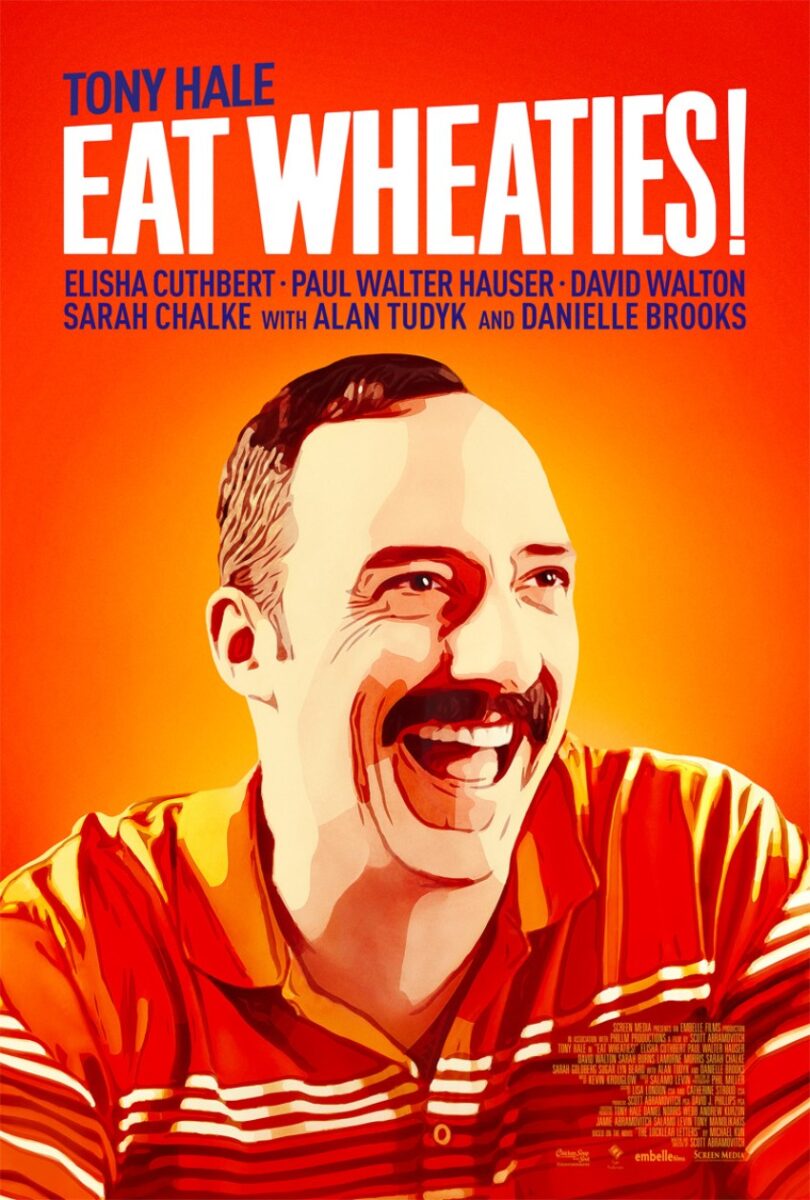
I set my sights on some Universities with music programs and ended up taking some lessons with a jazz guitarist and a classical pianist in preparation for that. Having only been playing piano for about a year or so at the time, I had to jump all the way from Grade 1 to Grade 9 Royal Conservatory level piano (which typically takes 9 years of study) and basically spent the whole following year preparing for my University audition. Thankfully practicing 6 hours a day paid off because I got accepted into the University of Western Ontario as a Bachelor of Music Piano Major.
Though I loved my time there and learned a ton, the program I was in focused primarily on modern western art music and writing for concert halls, which is a very different world than film scoring. So, after 2 years there, I decided to venture out on my own in pursuit of my goals, and actually ended up joining a band as a lead guitarist. I played in a couple of other bands for a few years after that, and continued writing my own songs, all while working on short independent and student films and even dabbling a little in acting. During all this, I always knew film scoring was my long-term goal, but I wanted to explore other avenues while I was young and had the freedom to do so.
When I turned 24 I really started feeling the pressure to figure out what I was going to do with my life, and that was when I realized I needed to focus all of my energy on film scoring. I reached out to some successful Canadian film composers, including Andrew Lockington and Tom Third to ask for their advice on how to get into the industry. They’re both incredibly kind and generous people and were happy to meet with me and share their experience! We’ve since stayed in touch and I’ve even had the pleasure to do a little assisting work for both of them over the years. It was because of their advice that I reached out to some audio houses in Toronto, and ended up landing a job at Grayson Matthews as a second composer on the TV show “The Next Step”, working under the wing of Ryan McLarnon.
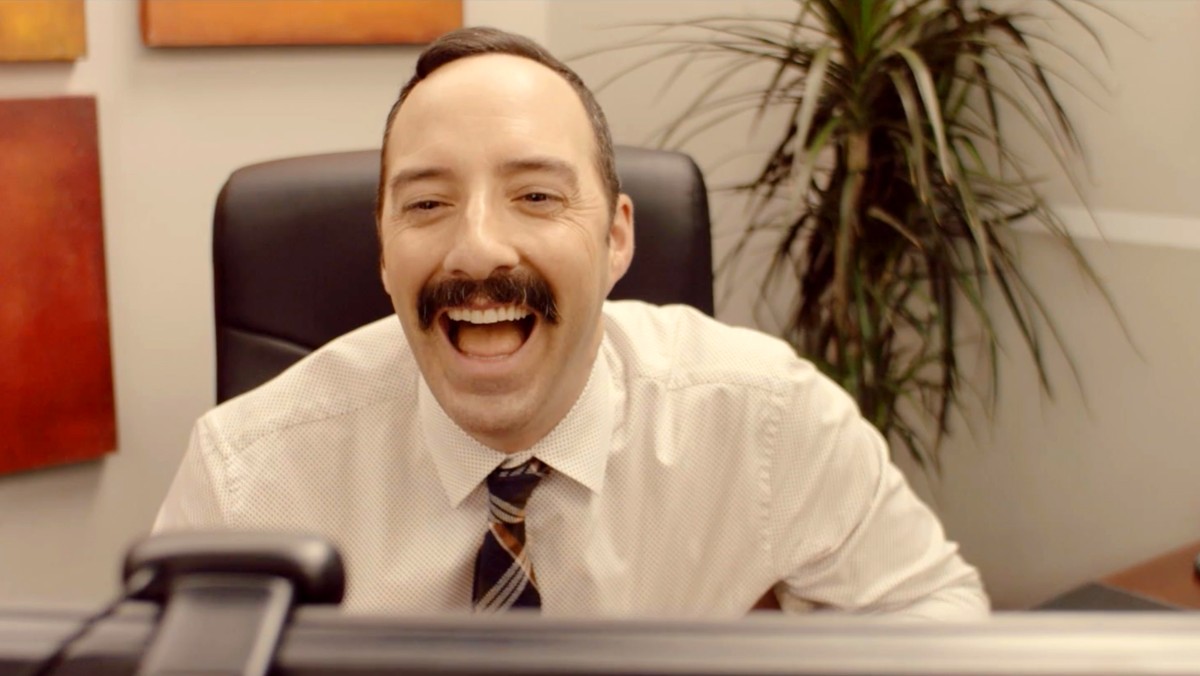
Shortly after that I was hired full time as an in-house writer and ended up working there for 4 years on TV shows such as “Backstage”, “Ice Road Truckers”, “Property Brothers”, a few features, and quite a lot of commercials. It was an incredible place to really develop my chops, build a solid resume of credits and get a sense of the industry. After going freelance back in 2017, I kept working on independent features and pitching on commercials with various audio houses both in Toronto and internationally. This latest project, “Eat Wheaties!”, actually came to me through my friend and colleague Rob Melamed, who is another former Grayson Matthews composer that I met during our time there.
He recommended me for it, as he had worked with Scott Abramovitch previously on his film “The Calling”, but was tied up with other projects at the time. Scott and I instantly clicked on our first call, which I actually had to take at the front of a sushi restaurant during a film festival, and here we are! That’s how it works out I guess! Someone somewhere that you’ve worked with recommends you and that’s how you get your next gig.
As a film composer, it is all about the application of music. Educate us about what you do and how you do it. How do you do “your style” of music and score for the film?
Kevin Krouglow (KK): Writing music is a little different than writing music to picture. When you write for yourself, you can write whatever you want and the inspiration can be anything. When you’re writing music for a film, you’re specifically trying to help tell a story. It’s not about the music, it’s about the film and the audience’s experience while watching it. It’s a very collaborative process, and your job is to essentially use your musical expertise to help bring the director’s vision to life and collaborate in finding the right musical voice and tone for the film. Though I have my skill sets, the instruments I play, and my own artistic sensibilities that will inevitably inform the style of the score, each film is ultimately going to have its own voice. The final result is a blend of the story, the unique tone that comes from everyone involved creatively in the production, and the director’s vision, all filtered through my musical interpretations of those needs.
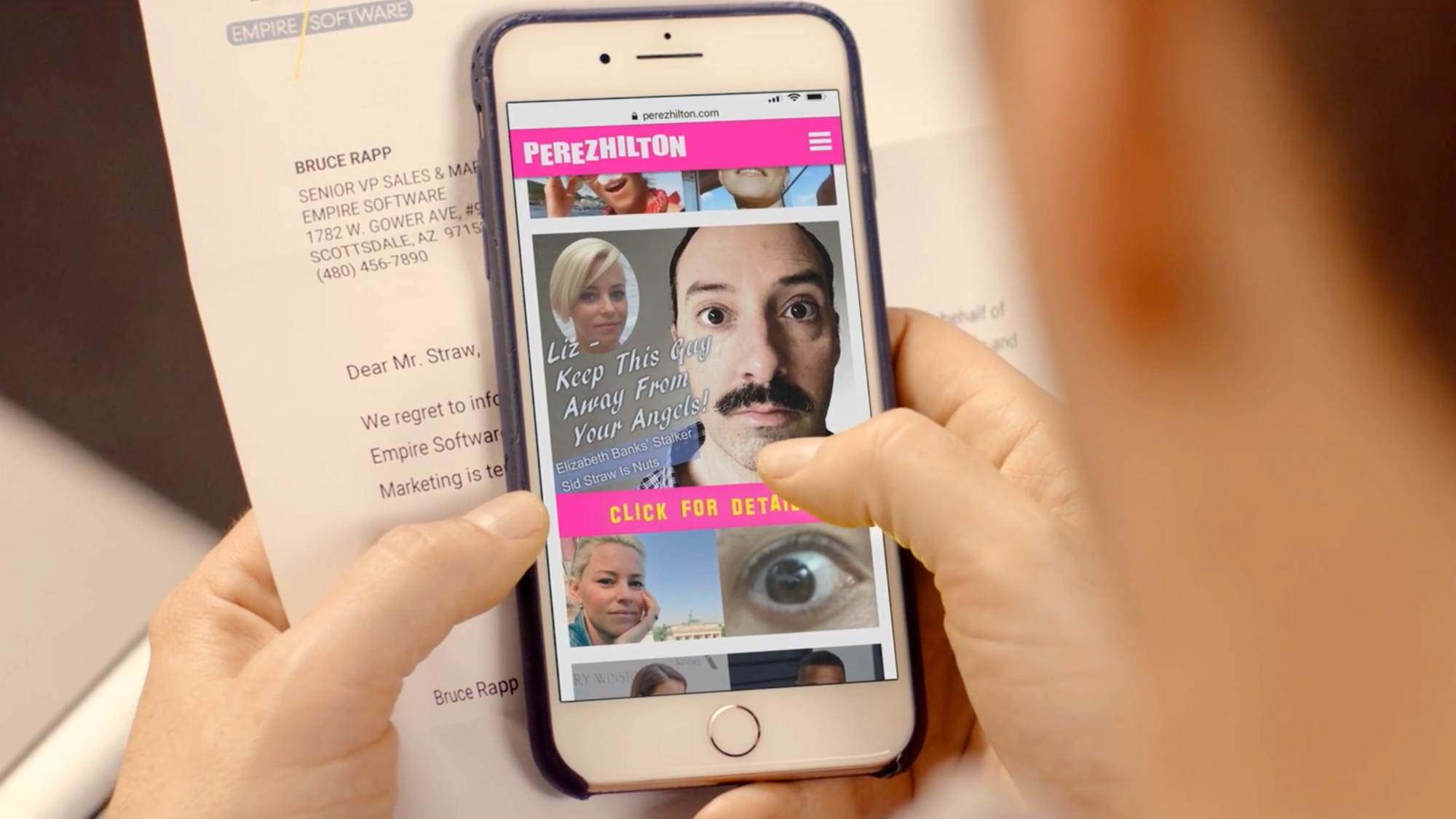
In terms of the actual process of writing the music, it always starts with a conversation with the director. If I’m lucky, I get brought on to a project at the very early stages before shooting even happens, which allows me more time to work with the director, to really explore different sounds, and find the right tone for the film before the time crunch starts kicking in. Sometimes, such as in the case of “Eat Wheaties!”, I start with a rough cut of the film, but in other situations, I might start with a concept or a script.
Whenever I have a cut of the film to watch, I try to write down my initial impressions, my emotional reactions, and any ideas about the placement of music, because that’s the closest experience I get to being an audience member, and something that I can never experience twice. After that, I begin to think about the story and the main themes that happen in the film and have a conversation with the director to break it all down and guide the direction of the music.
That first conversation informs what approach I’ll take, and from there I’ll go and start brainstorming some ideas. When I can, I like to write away from picture first, and really focus in on the emotion and mood of a particular theme or situation. This way I can develop the feeling behind the scene/film, rather than writing in a bit more of a practical way, such as trying to hit certain moments on screen. Once I’ve come up with the main overarching themes, I can then start to work them into the different scenes and moments throughout the film.
I took this same approach on “Eat Wheaties!”, coming up with a few ideas and sketches initially that I sent to Scott – as well as the other producer David Phillips and executive producer Daniel Webb – they listened and said what they liked, what they didn’t, and we went from there. After that, I started tackling scenes and sending them off to Scott at the end of every day or so. One of those initial ideas actually ended up in the film almost in its original form, and is where the main theme came from!
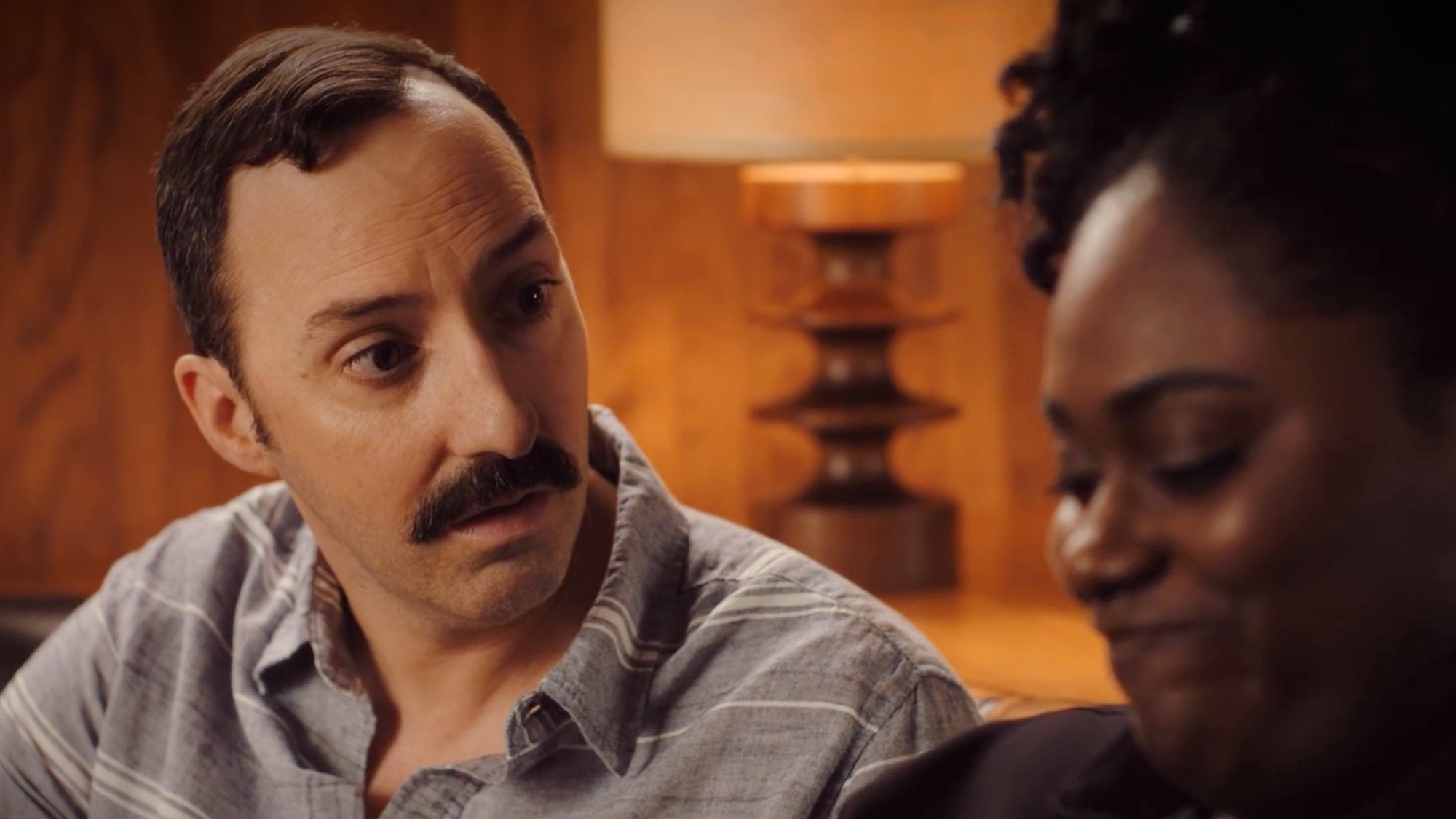
How was your experience collaborating with writer/director Scott Abramovitch on this film?
Kevin Krouglow (KK): Collaborating with Scott on “Eat Wheaties!” was a joy! I couldn’t have asked for a better director to work with on this project. He’s incredibly talented and professional, but he’s also one of the nicest guys I know, and we’ve developed a great friendship through this. Though he’s based in LA and I’m up here in the suburbs of Toronto, we were on the phone almost every single day during the bulk of the music writing process, chatting about each scene, the themes of the film, what the underlying emotional currents were, what Sid was feeling, and whether we wanted to focus on that, or the audience’s experience of Sid. Scott was also the writer and co-producer of the film, so he knew the characters and story inside out.
Whenever there were multiple ways to tackle a scene, and I had any questions about what the characters were really feeling below the surface or what we wanted the audience to be experiencing at a particular point of the story, he always had an answer, which was crucial in informing what the music was doing. His ideas and our conversations helped inspire new approaches that I wouldn’t have thought of if I were working on my own. The other producer David Phillips, as well as executive producers Daniel Webb, Tony Manolikakis, and Salamo Levin also had some great ideas that helped us get to where we did with the music. It’s incredibly valuable to have those perspectives which can spark new ideas, especially when you’re on the 10th version of a particular cue – it’s easy to start getting numb to certain things, and a fresh perspective and unique set of ears can make all the difference!
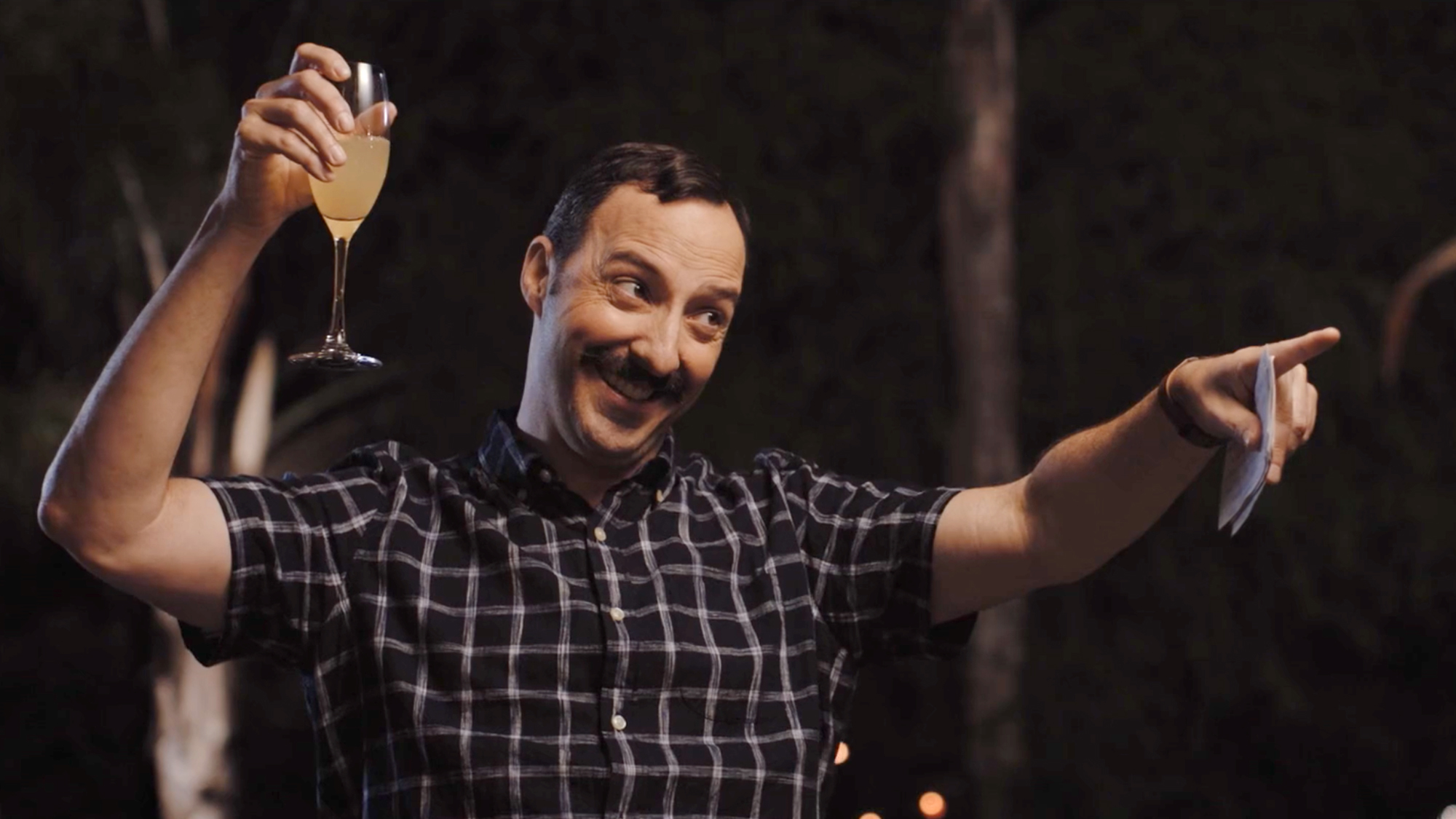
What was your very first project? What was working on it like? How does this compare to working on “Eat Wheaties!”?
Kevin Krouglow (KK): Oh jeez haha! My first project was this student film called “Last Stage”. It’s another really heartfelt film, made by Chris Pozzebon, Hollis Ludlow-Carroll, and Trevor Pickett, who were student filmmakers at the time. It’s about a comedian struggling between pursuing his job and caring for his mother who has Alzheimer’s disease. I was in my first year of University when I saw an article about the film in the local newspaper, they were looking for funding so I reached out and offered my services for free as a composer. Initially, they weren’t sure if they were going to have music at all, but when I checked back a month later, they decided they did want music and I got the gig! It was really cool too because after we finished the film, it won the “Best Student Production” award at the Yorkton Film Festival, and had a really great reception at the Sheridan screening. Their program coordinator, Jean Desormeaux (Sheridan ATVF), told me he really liked the music and kept in touch with me afterward, suggesting me to other students in later years which is how I had opportunities to score more films early on in my career.
I’ve certainly learned a ton since that first short film. I use different software now and better virtual instruments. For that first score, I used a virtual piano, organs, some virtual guitars, and strings. On “Eat Wheaties!” I played most of the instruments live, and when I did use virtual instruments they were much better quality. On “Last Stage” I remember I was writing to the script, and since I was in university at the time and didn’t have a midi keyboard yet, I had to play the parts on a real piano in a practice room, then sit down and write all the notes in by hand on a midi grid in the sequencer software I was using at the time. After that, I had to manually map out all the velocities – the volumes and intensities – of each note. Now, thankfully, I don’t have to do that as I have a midi keyboard that I use for writing where I can actually record my performance and it will have all the notes mapped out just the way that I played them, with all the same timings and volumes. Asides from that, working on a feature film is very different from a short film, you have more themes to develop, there’s more music to write, it takes longer, and there’s definitely more pressure working on a Tony Hale film than there is on a student film haha!
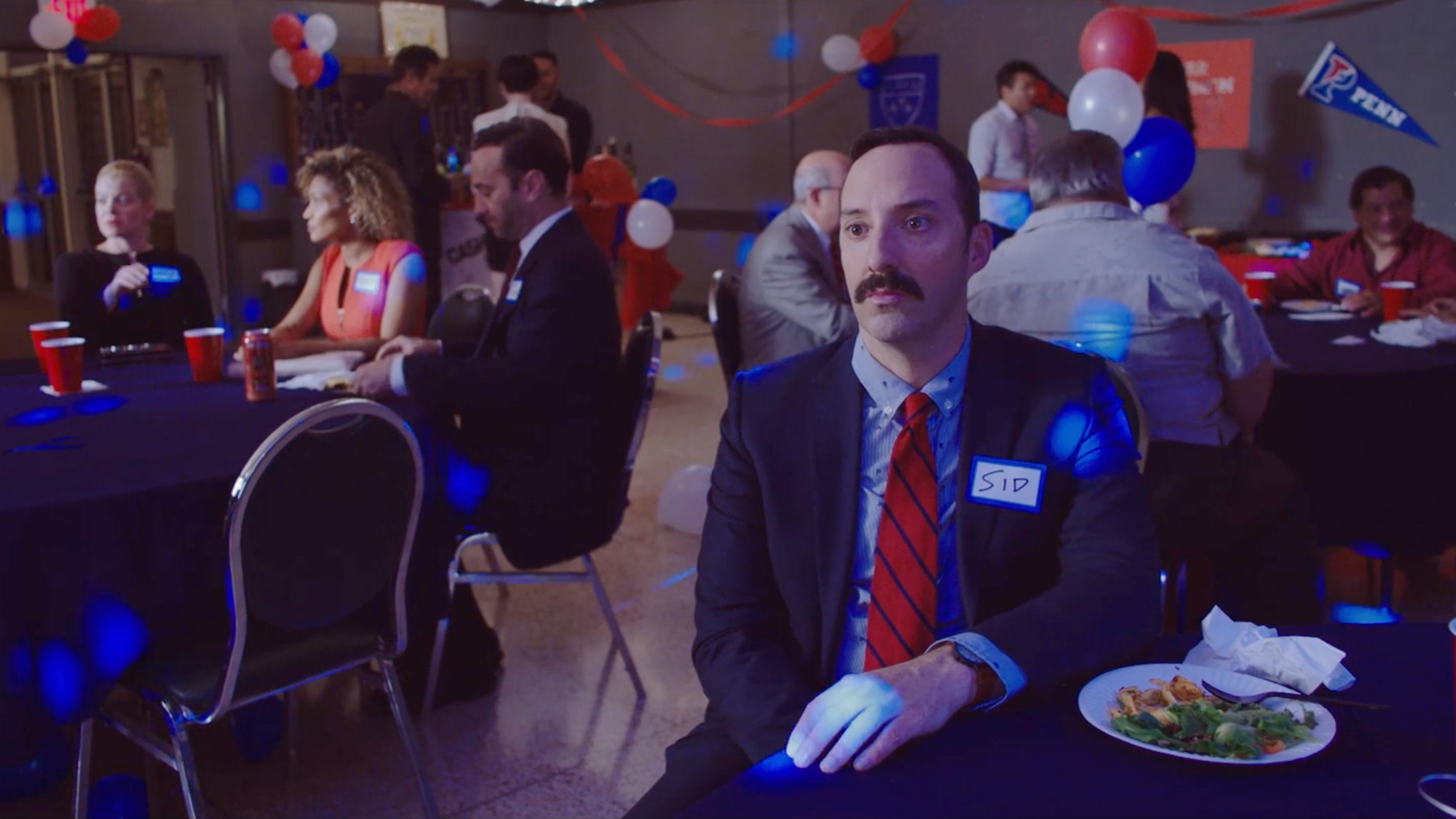
What worked better on “Eat Wheaties!” that might not have worked so well in the early days?
KK: Hmm. That’s a hard question to answer. I mean, probably everything? I’d say I’m always learning and improving, and having had a ton of experience working on film and TV behind me by the time this project came along made me know what to expect and how to pace myself, structure my time, and get the work done to its best quality. There’s so much you need to do and know as a film composer that you end up learning and developing along the way. You’re not just writing the music. Most of the time you’re also recording it, engineering it, mixing it, mastering it, setting up your session to picture, and then you have to have good time management and that’s a tough thing for creative work.
It’s true that you can hire people to do a lot of those things, but there usually isn’t the budget for that on indie projects, and that’s where you have to start out. You really have to learn what the fastest you can write is on your best days, and what the slowest is, and account for that. You also need to account for changes and revisions, and also time to just explore some ideas rather than settling on the first one you get. If I got “Eat Wheaties!” as my first film ever, I definitely would’ve had a much harder time. You have to take it one step at a time and grow in your career as you grow your skills.
While writing the music to the film, what scenes were the hardest to do? And why?
KK: That’s a great question! I think with “Eat Wheaties!” In particular, the hardest scenes were the ones closer to the beginning. We had to play a fine line between feeling Sid’s genuine excitement in reconnecting with Elizabeth Banks, his quirky personality, and his kind-heartedness, all while keeping up the momentum and propelling us forward in the story. At the same time, we had to gradually transition towards that feeling of discomfort and tension with what he’s doing and foreshadow the negative consequences of his actions.
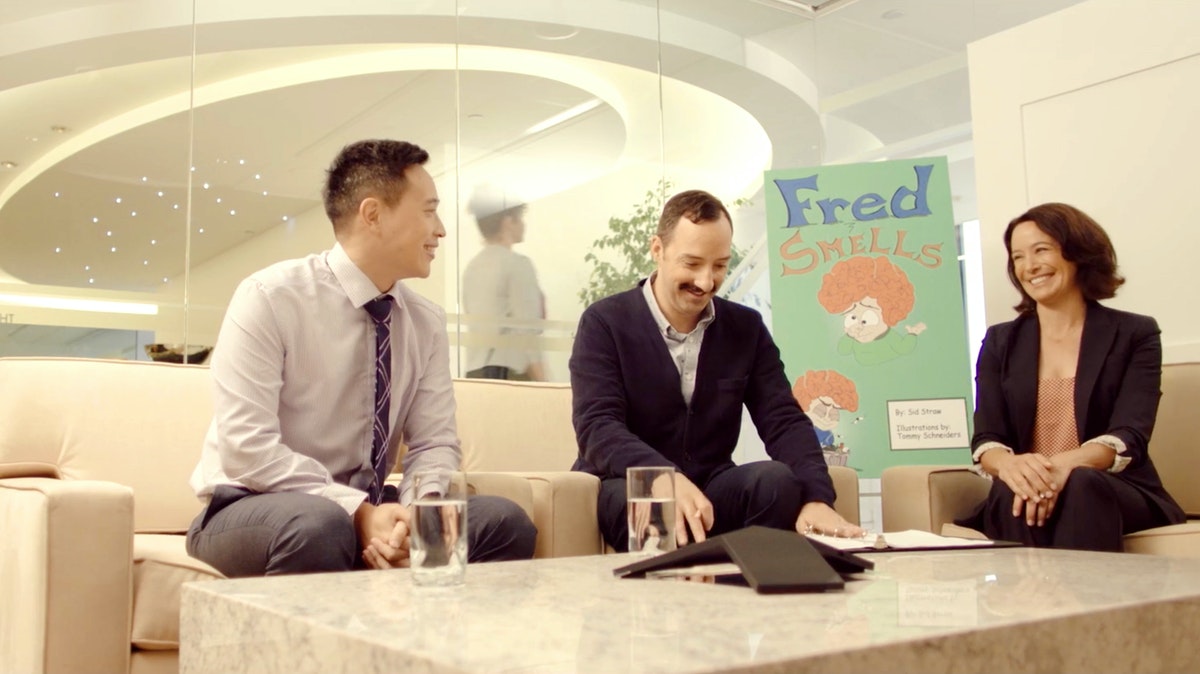
To add another challenge on top of this, most of the music had to come in during Sid’s Facebook posts, where there’s a lot of voice-overs, so the music had to delicately leave room for that and not compete with the dialogue. We didn’t want it to feel too comedic, too dark, or too heartfelt too early, and it still had to have some energy and momentum. Trying to balance all those aspects took a bit of time, but with everyone’s helpful input and perspectives, Scott and I found something that we all felt was working in the end and solved all those challenges in a creative way that worked well for the film.
It sounds like a lot of work writing a film score for a feature film. What did it take for you to deliver this project?
KK: It definitely is, but it’s worth it! You get used to working weekends and long days, basically from the moment you get up until you go to bed haha, but I’m still learning how to find a healthy work-life balance. Having worked on numerous TV shows and Features over my career, I’ve definitely learned to manage my time better and that you really have to hit the ground running. Though it may seem like there’s a lot of time, it flies by, and there’s always something unexpected that comes along the way. There is a sense of excitement that drives you though, especially having a great film like this one with such a fantastic cast. We wanted to meet certain festival deadlines, so I initially had between 2-3 months to do the whole score, but plans changed, so we actually ended up with more time than we initially thought to really perfect the score. Because of that extra time, we had the opportunity to explore 3 different stylistic changes to try and really find the right tone and feel for the film. It took a lot of work, but each time we were trying something new we were excited about it, and each new version was an improvement on the last.
What did you specifically bring to the table on this project as a film composer – what were your strengths?
KK: I think as the film composer my job is to bring in another layer to the story with the music that might not otherwise be on screen, or to amplify the subtleties that are already there. Sid is a pretty outgoing character who generally says what he’s feeling and that was captured brilliantly through Tony’s performance and Scott’s writing. With the music, at times we tried to tap into Sid’s deeper feelings that he wasn’t yet acknowledging himself, and at other times we brought in the audience’s perspective through the score.
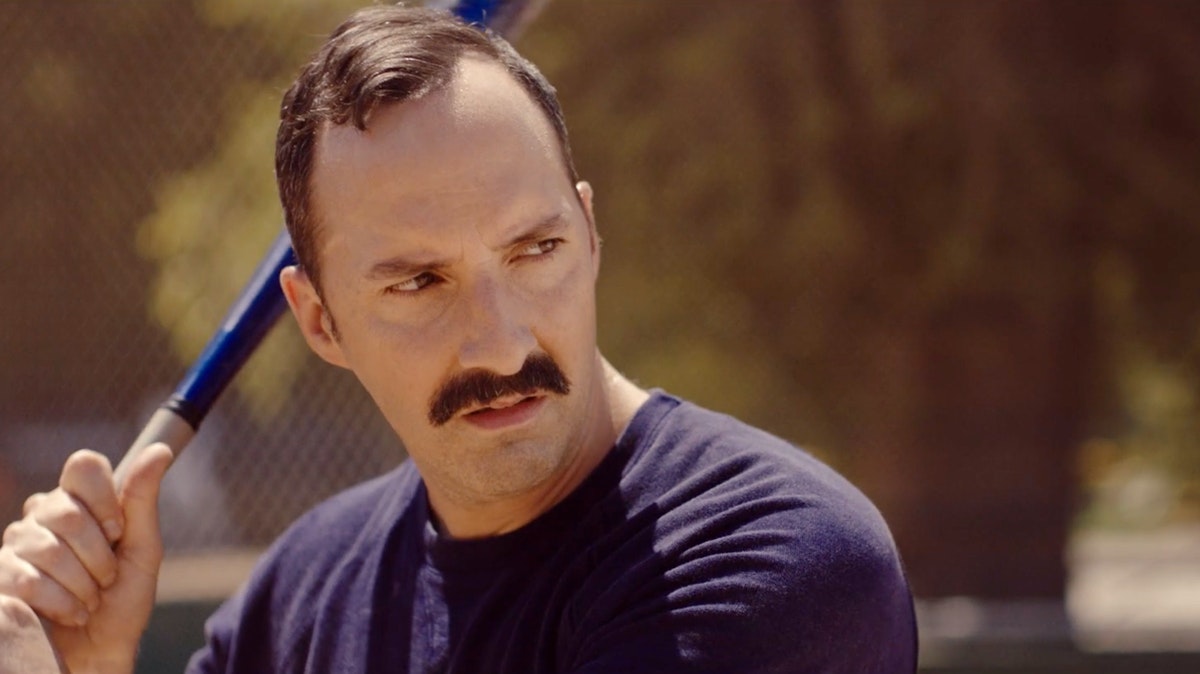
Also, as I mentioned earlier, on an indie or low-budget films you often have to do a lot yourself that you’d have a music department do for you on a bigger project. I had to do everything from writing, recording, producing, mixing, and mastering the cues, all the way to sending them off for final delivery. I also wrote and sang in the opening song for the film. I think having experience as a songwriter and producer as well as being a composer was definitely one of my strengths that I brought to the table. As we didn’t have much of a budget to hire players, being a multi-instrumentalist was also incredibly valuable as I was able to play a lot of the instruments myself. On the first iteration of the score, I actually played some clarinet, trumpet, banjo, and strummed a violin, which you can still hear in one of the cues later in the film if you listen for it (the one where Sid searches his name online in the scene after he gets fired). We also used some software synthesizers, lots of guitars which I also played myself, original sounds made from guitar pedals, virtual instruments including pianos, Wurlitzer, etc. Being able to jump between those different instruments, styles and approaches are definitely helpful when trying to find and craft the right sound for a score.
Is it tough making a living as a film composer?
KK: It can be, especially when you’re starting out. I’ve heard it said many times that it takes about 10 years before you start making a decent living from composing, and though everyone’s journey is different, that sounds about right to me. I started working towards becoming a film composer at the age of 15, scored my first short film when I was 18 and didn’t start making an actual decent living from it until I was 24 and got a job as a composer at an audio house. I worked as a private music teacher before that, but if I didn’t live at home with my parents during that time, and without their support, I likely wouldn’t have been able to put in the amount of hours it takes to develop my craft in order to get to where I am today. It’s a lot of hours of low-no-pay work, and if you have bills to pay, you need to spend most of your hours making a living rather than building up your career. I have so much respect for people that are able to build their careers from the ground up while also working a regular job supporting themselves! It’s really hard to do, especially in this industry.
One of the nice things about being a film composer, particularly if you also work in television, is that you get performing rights royalties for airtime and reruns. I’ve been lucky to have worked on numerous television shows which continue to play on air. After some time, it adds up and can actually be a baseline income or safety net. I’ve also done and continue to do a lot of work in the advertising world, working as a freelancer for many of the big audio houses in Toronto and some internationally, having written music for clients such as Adidas, Air Canada, Campbell’s, eBay, Lexus, McDonald’s, Porsche, TD Bank, and World Wildlife Fund. The advertising world can pay rather well, so it’s a big help to have that going at the same time as taking on independent lower budget projects to try and build a name for yourself in this career. I’d say that having a successful career as a film composer requires a lot of time, patience, and hard work. I think if you stick it out, you’ll get there, you just have to take the work as it comes, be grateful when you do have work, even if it’s not your dream job yet, and really focus on making the most of the journey!
Do you have any other music talents you haven’t told us yet that you’d like to share?
KK: Haha! I can do some throat singing! I actually used to do screamo when I was in high school, so I’ve been fascinated with distorted singing for a long time now, and am looking forward to the day I can squeeze that into a film score! I can also play didgeridoo – I was really excited when I first learned how to circular breathe! I just really love learning new instruments, especially world instruments. I borrowed Tom Third’s Sitar for one of my projects before and that was such a joy. There’s just something incredible about sitting down with something you haven’t played before and learning from it simply by playing it, from how it responds to you and how you maneuver around it. It feels very interactive and it’s almost like the instrument is teaching you. There’s so much craft and wisdom that goes into the creation of different instruments that you can draw from, it’s incredibly inspiring! I’m always trying to learn something new where and when I can, and get excited whenever I have the opportunity to find or create new sounds and try new instruments for a project.
What else have you got in the works?
KK: Currently I’m working on putting together the soundtrack release for “Eat Wheaties!”, I’ll be sure to let you know when we have a release date announced – I’m hoping it’ll be fairly soon! Asides from that, it’s been a bit of a whirlwind, so I’m actually hoping for a short vacation soon, even if it’s a stay-cation! Haha. I’ve also been working on a solo electronic album on and off for a while, so I may dive back into that for a bit, but depending on when the next project comes in, I’ll likely have to put that on the backburner just a little longer! No complaints though!
Tell us what you think of the interview with your name. What do you think of it? What ideas did you get? Do you have any suggestions? Or did it help you? Let’s have your comments below and/or on Facebook or Instagram! Or join me on Twitter.
Follow Kevin Krouglow on Social Media
Website
IMDb
LinkedIn
Instagram
MORE STORIES FOR YOU
The Key Facts Behind How Jeff Nichols Made The Indie Hit MUD
Jeff Nichols gives himself directorial challenges to master on every project.
In Conversation with Michael Oblowitz Director of Confidential Informant
Confidential Informant stars Mel Gibson, Dominic Purcell, and Kate Bosworth

